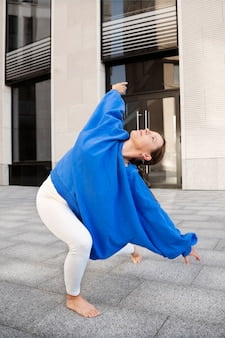The Practice of Tai Chi
Tai Chi is a form of mind-body exercise that originated in China more than 2,000 years ago. It is an ancient practice that involves slow, gentle movements and deep breathing. Tai Chi has become increasingly popular in recent years, and for good reason. This low-impact exercise has been shown to have numerous benefits for both the body and the mind. One of the most promising benefits of Tai Chi is its potential to help with memory loss.
The Link Between Tai Chi and Memory Loss
The connection between Tai Chi and memory loss is not new. Several studies have found that Tai Chi may help to improve cognitive function, which includes memory. In one study, researchers found that practicing Tai Chi for just 12 weeks led to improvements in memory and other cognitive functions in older adults.
How Tai Chi May Help with Memory Loss
Scientists are still working to fully understand how Tai Chi affects the brain and cognitive function. However, there are several theories that suggest how Tai Chi may help with memory loss. One theory suggests that Tai Chi helps to improve blood flow and oxygen supply to the brain, which can enhance cognitive function. Another theory suggests that Tai Chi may help to reduce stress and inflammation, which can contribute to improvements in memory and other cognitive functions.
Other Benefits of Tai Chi
In addition to its potential to help with memory loss, Tai Chi has numerous other benefits for both the body and the mind. Some of the most notable benefits of Tai Chi include:
- Reduced stress and anxiety
- Improved balance and flexibility
- Reduced risk of falls in older adults
- Reduced pain and stiffness in people with arthritis
Getting Started with Tai Chi
If you are interested in trying Tai Chi to help with memory loss or for any other reason, there are several ways to get started. Many community centers, gyms, and yoga studios offer Tai Chi classes, and there are also many online resources available for those who prefer to practice at home.
What to Expect in a Tai Chi class
Tai Chi classes typically involve a series of slow, flowing movements that are designed to be gentle on the body. Classes may start with a warm-up period, followed by the actual practice of Tai Chi movements. Instructors may also incorporate breathing exercises, meditation, and other techniques to help participants relax and get the most out of their practice.
Conclusion
In conclusion, Tai Chi is a low-impact form of exercise that can have numerous benefits for both the body and the mind. While more research is needed to fully understand the link between Tai Chi and memory loss, there is a growing body of evidence to suggest that Tai Chi may help to improve cognitive function, including memory. If you are interested in trying Tai Chi for yourself, there are many resources available to help you get started. So why not give it a try and see how Tai Chi can benefit you?





